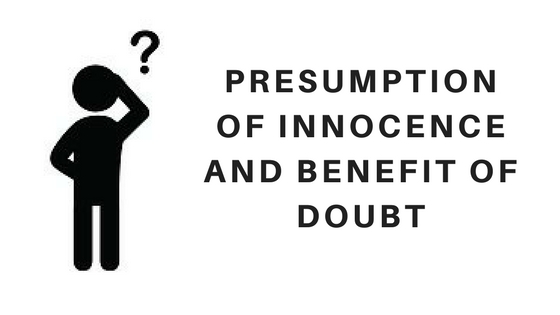Aapka Consultant Judgment Series- In this series, we are providing case analysis of Landmark Judgments of Hon’ble Supreme Court of India.
Kali Ram v. State of Himachal Pradesh
(1973) 2 SCC 808
JUDGES: H.R. Khanna, A. Alagiriswami and R.S. Sarkaria
Date of Decision: 24-09-1973
FACTS:-
The accused-appellant Kali Ram was tried in the Court of Sessions Judge for an offence under Section 302, IPC for causing death of one Dhianu and his daughter Nanti. He was also charged for committing the offence of robbery. The Ld. Sessions Judge convicted him and sentenced him to death. On appeal, the High Court also confirmed the conviction and sentence passed by Sessions Judge by putting reliance on three evidences, viz., evidence of witness recorded by police over two months after the occurrence, letter written by the accused to the Dy. Commissioner making a confession and extra-judicial confession made to Sahi Ram who incorporated the letter to the Station House Officer. Thereafter, the accused filed a special leave petition before the Supreme Court.
ISSUE:-
Whether the accused should be presumed innocent and benefit of doubt should be given to him?
JUDGMENT:-
The Hon’ble Supreme Court stated that the prosecution has rested his whole case based on three evidences. Firstly, that the accused had spent a night near the victim’s house and thereafter he headed towards the house of the victim. The court concluded that the accused headed towards the house of the victim was unreliable because the testifying witness waited for over two months despite knowing the graveness of the offence committed. The statement of the testifying witness, in the absence of any cogent reason, lost most of itrs value. Secondly, prosecution has asserted that the accused had confessed about his guilt in a letter and mailed it to the Dy. Commissioner of Police. The Court concluded that the prosecution had neither verified the authenticity of the letter of confession nor displaced the possibility that it could have been fabricated. It is the duty on the part of the prosecution to do all such necessary things in order to have an evidentiary value of the letter. Thirdly, the prosecution has asserted that the accused made an extra-judicial confession to one witness named Sahi Ram, which in turn, wrote a letter to the Station House Officer. The Court concluded that this letter is inadmissible in evidence as any statement made to a police officer in the course of an investigation cannot be used for any purpose except what has been mentioned under Section 162 of Code of Criminal Procedure. The restriction regarding the use of the statement made in the course of investigation cannot be set at naught by the police officer as by not himself recording the statement but having it in the form of a communication addressed to the police officer.
The Court further observed that one of the fundamental principles in our criminal justice system is that the accused is presumed to be innocent unless the presumption is rebutted by the prosecution by producing certain evidence which proves the guilt of the accused. The burden of proof lies heavily on the prosecution and unless and until it relieves such burden, the court cannot record a finding of the guilt of the accused. If any material is brought on record consistent with the innocence of the accused which is reasonably be true, but not positively proved to be true, the accused would be entitled to acquittal. Another golden rule in the criminal justice system is that if two views are possible regarding the evidences adduced in a case; one pointing to the guilt of the accused and another which is proving the innocence, then the view which is favourable to the accused must be adopted. This rule has a special relevance when the guilt of the accused sought to be established by circumstantial evidence. It is also a rule that if the courts entertain reasonable doubt regarding the guilt of the accused, the benefit of the doubt goes to the accused. The rule does not warrant acquittal of the accused by resorting to surmises, conjectures or fanciful considerations. In arriving at a conclusion about the guilt of the accused, the court has to judge the evidences with the yardstick of probabilities, its intrinsic worth and animus of witnesses.
HELD:-
The Court allowed the appeal by rejecting all the evidence produced by the prosecution and reversed the judgment and order of both Trial court and the High court. It gave the benefit of doubt to the accused.
To Get Legal Opinion from Advocates/ Legal Experts, Please click here
To Get Legal Opinion from Retired Hon’ble Judges, Please click here












